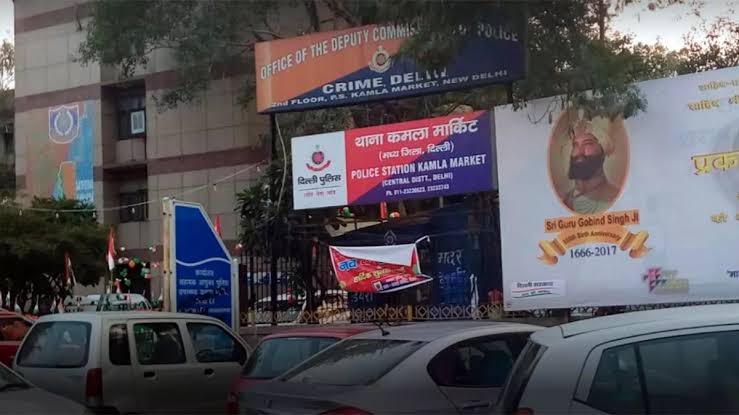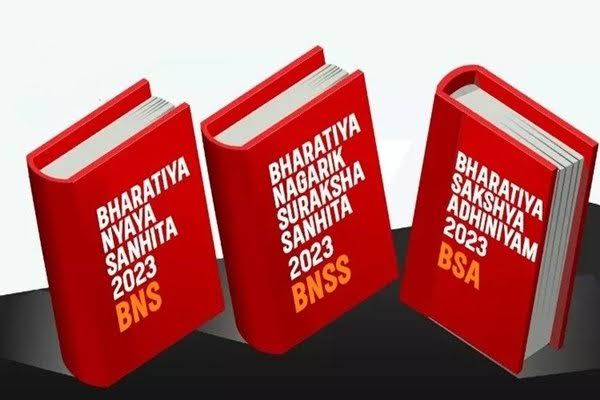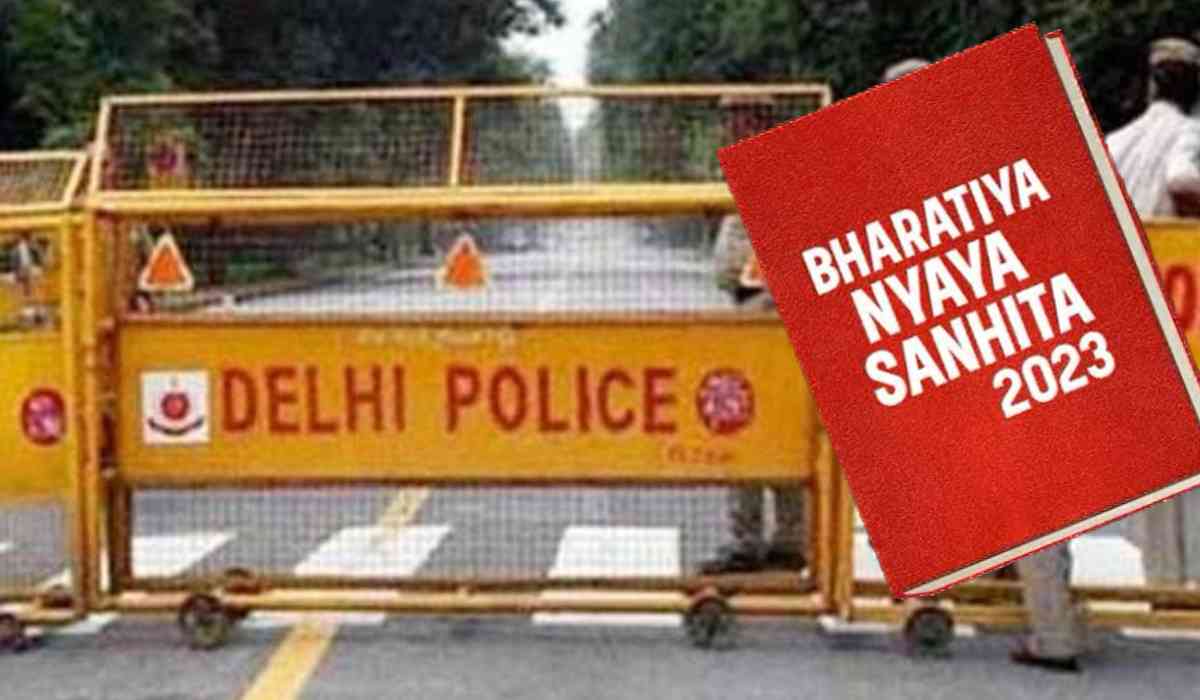It’s been not even a few hours since the new criminal laws came into effect on July 1 and the Delhi Police have already filed their first FIR under the newly Bharatiya Nyay Sanhita (BNS), 2023, which has replaced the old ‘British time’ Indian Penal Code.
The FIR was registered in Kamla Nagar Police Station, against Pankaj Kumar, a street vendor, who hails from Patna, Bihar, and sells gutka and water bottles on a makeshift cart. An FIR was filed against him on the charges of obstructing a road near New Delhi Railway Station.
What did the Police Say?
The incident happened at 12:15 am. Pankaj Kumar was selling goods on a foot overbridge near the station. According to the police, his stall was blocking the road. The sub-inspector on duty asked Pankaj several times to remove his stall, but he refused.
 The inspector also asked several passers-by to help with the investigation, but they declined. The inspector then used the 'e-Pramaan' app to record a video and registered the case at 1:30 am.
The inspector also asked several passers-by to help with the investigation, but they declined. The inspector then used the 'e-Pramaan' app to record a video and registered the case at 1:30 am.
The 'e-Pramaan' app, managed by the Delhi Police's Crime Branch, directly feeds content to police records for further investigation. An officer confirmed that the Delhi Police had trained 30,000 personnel on using the app and the new criminal laws. This training included assistant sub-inspectors, inspectors, assistant commissioners, and deputy commissioners.

As a result, An FIR was registered based on a complaint from a head constable patrolling near New Delhi Railway Station, under Section 285 of the new criminal code.
Section 285 states: "Whoever, by doing any act, or by omitting to take order with any property in his possession or under his charge, causes danger, obstruction or injury to any person in any public way or public line of navigation, shall be punished with a fine which may extend to Rs 5,000."
New Criminal Codes Replace Colonial-Era Laws in India
Three new criminal laws have taken effect in India, marking a significant overhaul of the country’s criminal justice system. At midnight, the Bharatiya Nyaya Sanhita (BNS), Bharatiya Nagarik Suraksha Sanhita (BNSS), and the Bharatiya Sakshya Adhiniyam (BSA) replaced the colonial-era Indian Penal Code, Code of Criminal Procedure, and Indian Evidence Act, respectively.
The government and opposition parties have disagreed over these laws, which are intended to make significant changes. The new laws were passed during the winter session of parliament and were approved by President Droupadi Murmu in December of last year.

According to Home Minister Amit Shah, they were created with technology advancements in mind and have justice as their primary goal rather than punishment. Shah stressed that, in contrast to colonial-era laws that put an emphasis on penal action, the new laws place a higher priority on delivering justice quickly. Additionally, he downplayed the criticism from opposition parties, promising that his administration would prevent India from turning into a police state.
Also Read : Three New Criminal Laws Coming Into Force Across India On July 1: An Overview (vygrnews.com)
However, Senior opposition leaders, like former Home Minister P. Chidambaram, have criticised the new laws as being more draconian. They argue that the laws could become instruments of oppression against the poor, working, and weaker sections of society.
The new criminal codes require judgments to be delivered within 45 days of the completion of the trial and mandate that charges must be framed within 60 days of the first hearing. The changes aim to ensure speedy justice and address new kinds of crime.
While the new laws are now in effect, cases filed before today will continue to be tried under the old laws until their final disposal. This transitional provision aims to prevent any disruption in ongoing legal proceedings.
(Inputs from Agencies)
© Copyright 2024. All Rights Reserved Powered by Vygr Media.






















